Allstar customers gain access to Tesla’s Supercharger network
Allstar Chargepass customers can now pay to charge their electric vehicle at Tesla Superchargers situated across the UK.
The Tesla network boasts more than 1,300 Tesla Superchargers in 135-plus locations.
While every Tesla Supercharger is open to drivers of Tesla vehicles, those customers with non-Tesla vehicles can also take advantage of over 400 chargers on the network, with this number set to grow.
Customers will just need to download the Tesla app, regardless of their vehicle model and input their Allstar EV card to view all available charge points and pay for charging.
All transactions across the Allstar charging network, at home charging and refuelling are then consolidated on one invoice.
The expansion to the Allstar charging network means that 99.6% of Allstar’s charge points are now rapid and ultra-rapid.
Ashley Tate, MD of Allstar Chargepass UK, said: “The Tesla Supercharger network is a fantastic addition to the Allstar network.
“The addition of Tesla enables Allstar customers to charge at some of the fastest chargers at the most desirable locations and makes Allstar one of the largest EV charging networks dedicated to business in the UK..”
Electric truck trial with Vertellus EV Discovery Programme
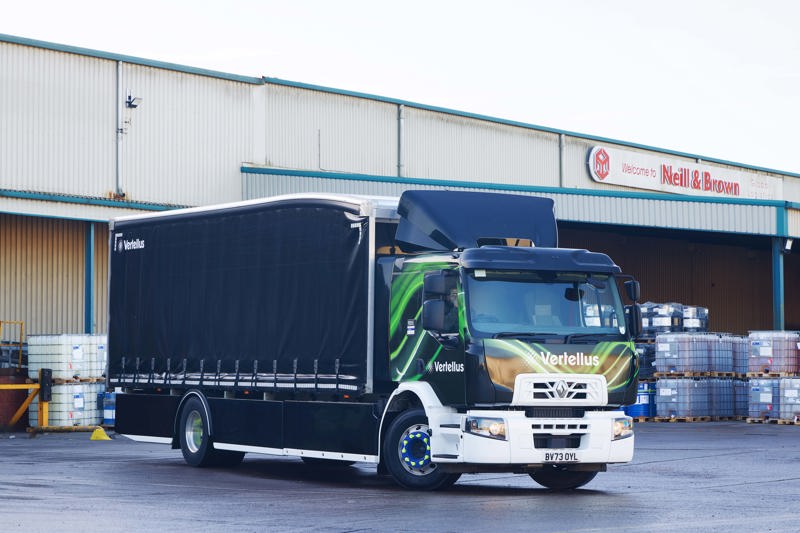
Humber-based Neill and Brown Global Logistics is undertaking the company’s first trial of a fully electric truck from contract hire company, Vertellus.
Supplied through Premium Leasing, Thompson Commercials’s vehicle leasing arm, the 18-tonne Renault Trucks E-Tech D rigid is on the Vertellus three-month EV Discovery programme, which includes the installation of a DC charger at the vehicle’s operating base at Livingstone Road, Hessle.
Peter Brown, CEO of Neill and Brown, said: “Reducing our environmental impact is a priority, not only for our business but also for our customers who need to demonstrate decarbonisation in the supply chain. So we need to make considered commercial decisions to minimise our fleet’s carbon footprint, and the Vertellus EV Discovery Programme is allowing us to evaluate an electric truck under real world conditions without the risks and commitment of purchasing a vehicle over the long term.”
The electric truck has joined Neill and Brown’s network logistics fleet on local deliveries, covering distribution for the HU postcode area for The Pallex Network.
Fleet manager Michael Organ said: “The electric truck is doing the work we would normally do with one of our 18 tonne rigids, it’s out by 7am and back on charge by 3pm, delivering two or three palletised loads a day. It’s a very smooth drive, and quiet too, with less noise and vibrations. It’s doing what it says on the tin.”
He added: “EV technology is here, and we’re not going to know if it works for our operation unless we dip our toe in the water.
“The Vertellus EV discovery programme is helping us to inform these vital decisions for the future of our fleet.”
Brown concluded: “For back to base operations delivering locally it works, and highlights the urgent need for Government incentives and support, as well as investment in infrastructure, to help operators switch to electric."
Serco Group trials electric recycling and refuse vehicles
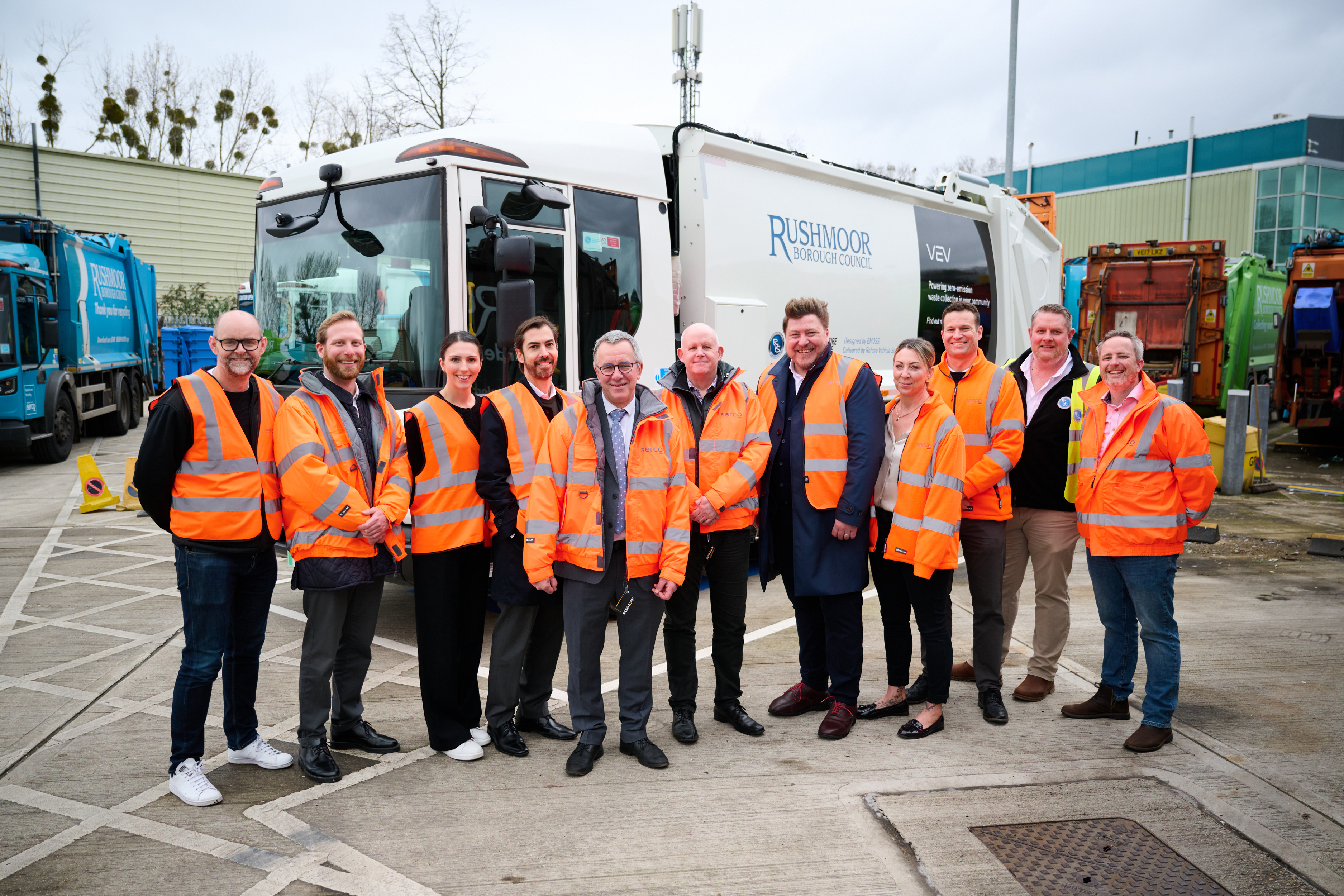
VEV is working with leading public service provider, Serco, and Refuse Vehicle Solutions (RVS), to pilot electric recycling and waste collection vehicles in Basingstoke and Deane, Hart and Rushmoor.
Refuse collection vehicles (RCVs) are classified as heavy goods vehicles (HGVs) and can emit up to 600g CO2 per kilometre when fully laden.
They are arguably among the largest carbon emitters in councils’, or their contractors’, vehicle fleets – making them priority candidates for electrification and a key focus for change to be successful in meeting carbon reduction targets by 2030.
Supporting the climate emergency targets of Basingstoke and Deane, and Hart and Rushmoor Councils, Serco, RVS and VEV have combined their expertise to reduce the carbon footprint of recycling and refuse collection by demonstrating the capabilities of electrically powered collection vehicles (eRCVs).
Set to be deployed in a pilot scheme, RVS has refurbished and repowered two diesel RCVs into as-new electric vehicles. This process results in a lower manufacturing carbon footprint compared to building a new EV from scratch, while also removing a diesel vehicle from the fleet.
VEV has supplied and installed charging infrastructure for the eRCVs, and deployed its fleet management platform, VEV-IQ, to track performance during the pilot.
VEV-IQ will monitor multiple parameters throughout the pilot programme, including the eRCVs’ operational routes, charging schedules, power usage, and CO2 savings for the councils and Serco.
The project builds on the initial electrification feasibility assessment conducted by VEV at Rushmoor.
The pilot aims to demonstrate the significant emissions- and noise-reducing benefits of electric vehicle waste collection, along with the operational benefits of eRCVs, and establish the business case for Serco to electrify their refuse collection fleets.
VEV CEO Mike Nakrani said: “Electrifying recycling and refuse collection gives local councils the opportunity to significantly reduce carbon emissions and noise pollution simultaneously, compared to a conventionally powered vehicle.
“We are pleased to work with RVS and Serco to deliver on the climate emergency targets of Basingstoke and Deane, and Hart and Rushmoor Councils.
“We’re confident in proving the operational and business case for fleet electrification to reduce the carbon footprint of local council fleets, while delivering a cleaner, quieter environment for local residents.”
George Roach, regional director for Serco Environmental Services, added: “Serco are proud to be partnering with VEV, RVS and Basingstoke and Deane, Hart and Rushmoor Councils for this pilot, which sees preloved diesel vehicles taken off the road and upcycled into low emission electric vehicles, supporting both our and the local authorities’ net carbon zero targets.”
Octopus Energy and Addison Lee join forces to offer ‘cheaper’ EV charging to drivers
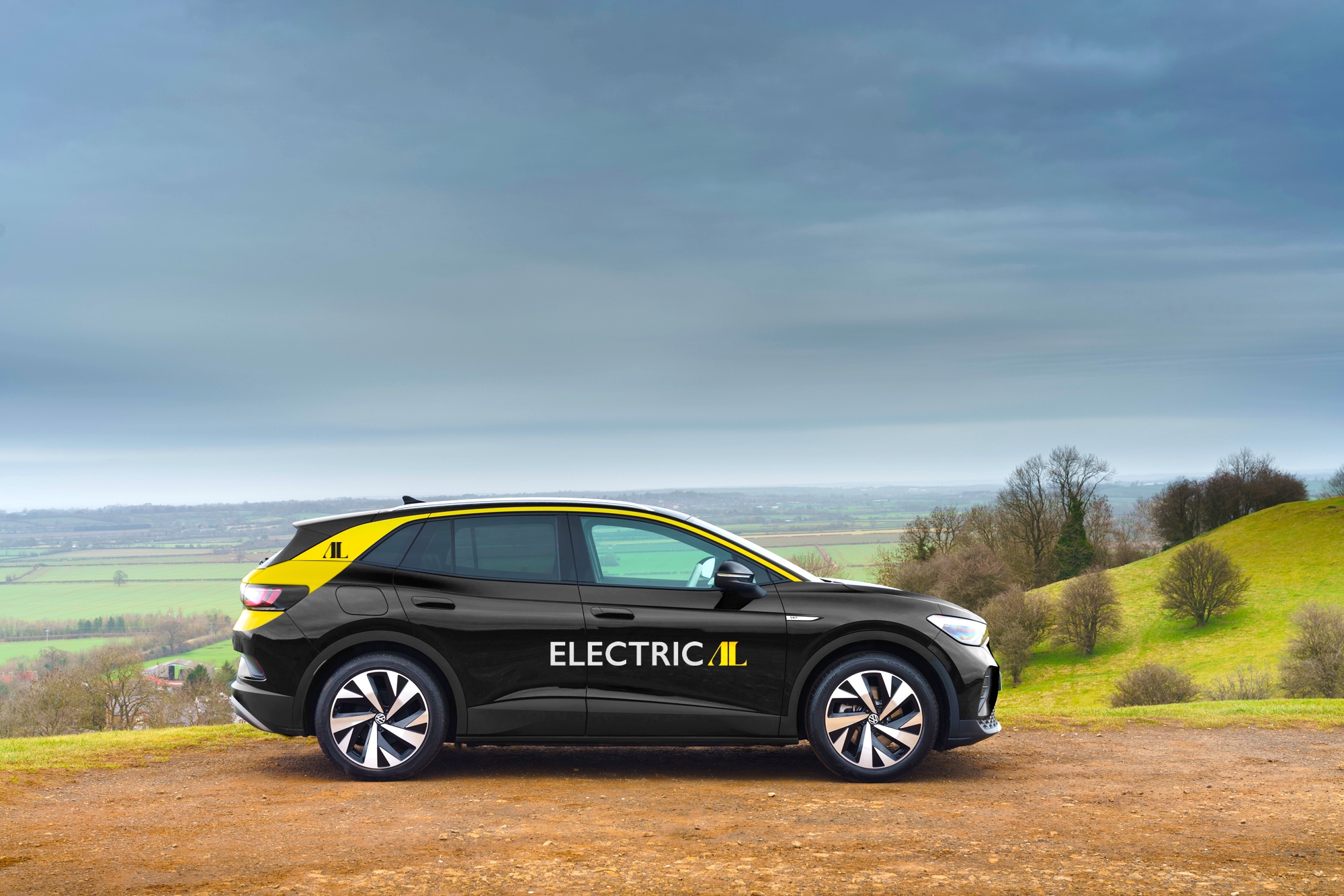
Drivers at Addison Lee are being given access to Octopus Energy’s EV roaming service, Octopus Electroverse.
The partnership also means Addison Lee drivers will get up to 24% off their charging costs at thousands of Source London and MFG EV Power charge points across London.
Addison Lee operates fully electric and zero emissions capable vehicles from executive, premium cars, to black taxis. This includes 600 plug-in hybrid VW multivans, Audi A6s, and A8s, in addition to 1,000 fully electric VW ID4s.
Liam Griffin, CEO at Addison Lee, said: “As the first private hire operator in London to introduce EVs at scale, we have been a pioneer of electrification. This also means that we have seen first-hand the difficulties that private hire drivers face when it comes to finding reliable and available charging infrastructure.
“Over the last three years, we have committed to supporting our drivers with this ongoing challenge, and we are pleased to add Octopus Energy to our range of strategic charging partnerships.”
Matt Davies, director of Octopus Electroverse, added: “Addison Lee has taken brilliant steps towards electrifying its fleet. We’re excited to now give their thousands of electric cab drivers access to our super-simple EV charging experience, as well as discounts on key charging networks.”
HTC & FPS agree end-to-end electrification service
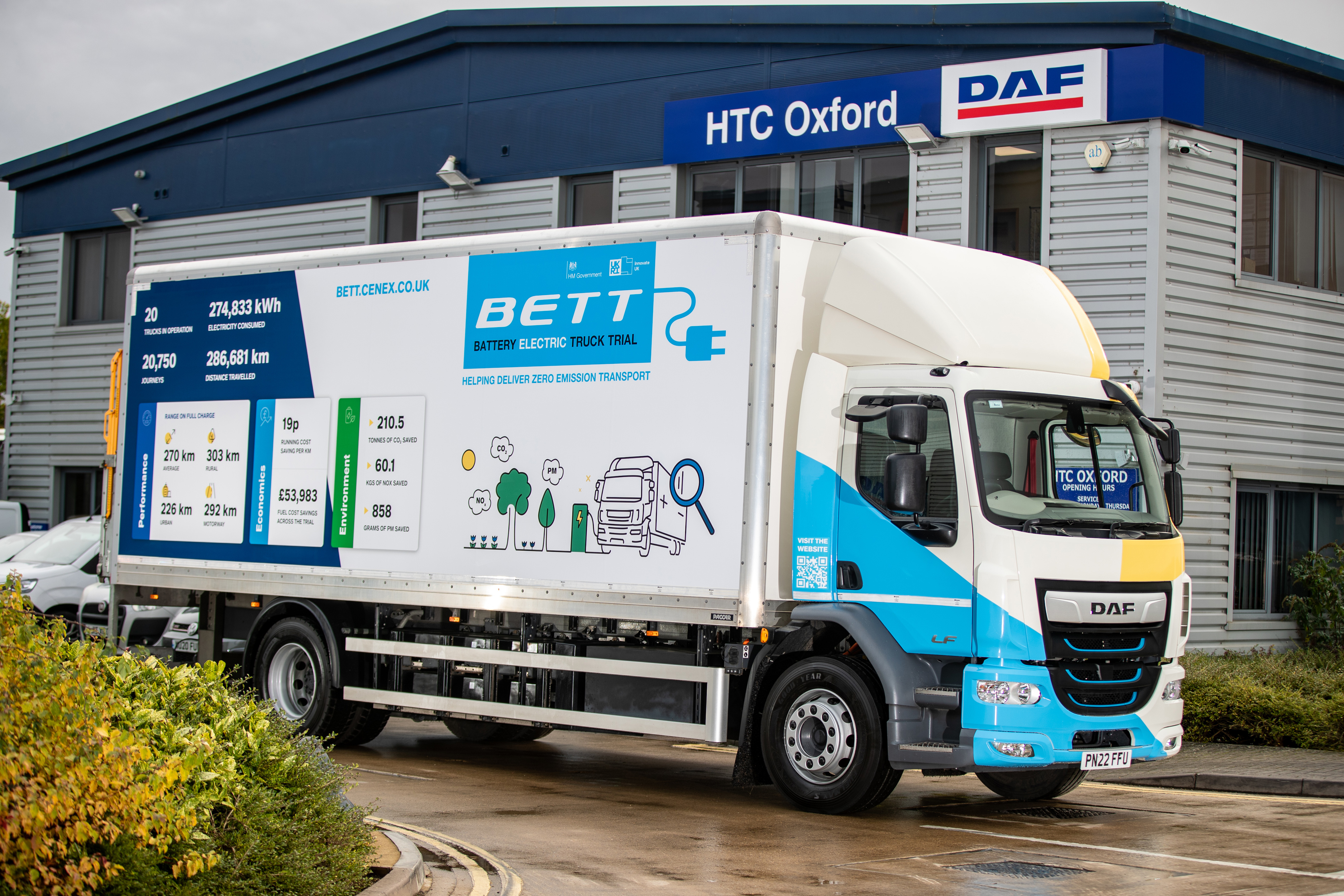
HTC Group has completed an agreement to co-operate on delivering an end-to-end electrification service with Flexible Power Systems (FPS), a UK based electric fleet software specialist.
The partnership, they say, will enable HTC’s DAF customers to benefit from EV transitions that combine decades of vehicle experience from HTC with specialist data-oriented Plan, Deploy and Operate electrification offers from FPS.
Paul Whincup, truck sales director at HTC DAF, explained: “Most operators can easily integrate a single electric truck into their operation to trial the technology without major infrastructure investment, the biggest challenge is the transition to multiples of electric vehicles.
“Charging infrastructure, servicing and operational fit all have to be right if deployments are to succeed.”
SSE Energy Solutions joins forces with Octopus Electroverse
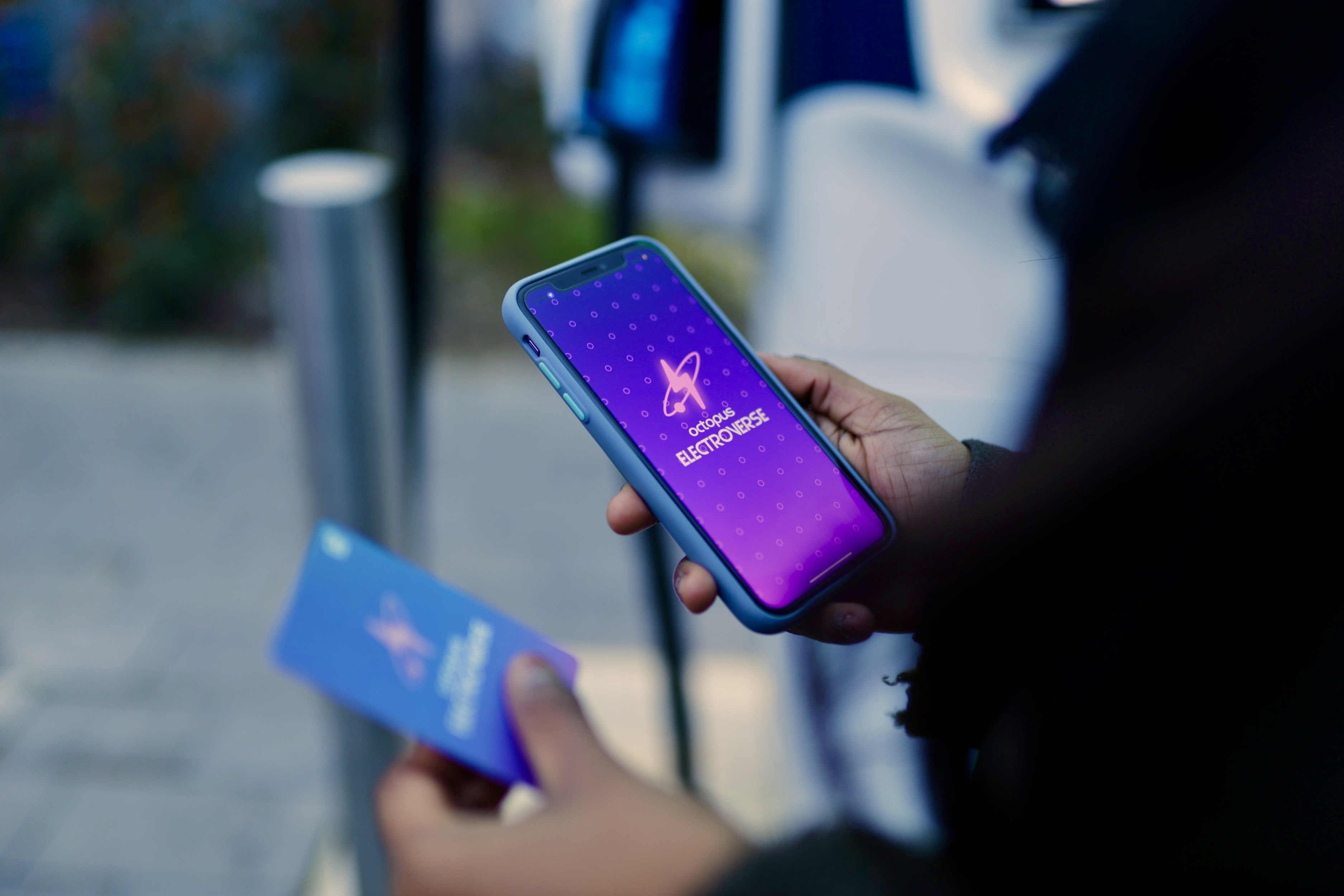
SSE Energy Solutions has partnered with electric vehicle (EV) roaming platform Octopus Electroverse.
Users of Octopus Electroverse will now be able to ‘tap and charge’ at any of SSE’s hubs.
SSE plans to build 500 ultra-rapid EV charging hubs powered by traceable, renewable energy in the UK and Ireland by 2030, with several sites already operational and more under construction.
All SSE’s hubs feature charging units capable of delivering up to 150 kilowatts (kW) of power.
Simon Pickett, head of EV assets and technology at SSE Energy Solutions, said: "This partnership accelerates our mission to build a smart, flexible charging infrastructure enabling the mass adoption of EVs. We already have an agreement with another charge card operator in Paua and hope to announce more partnerships soon.
“At SSE, we want to make sure our customers can access reliable charging points across the UK and using platforms like Octopus Electroverse makes the whole process much simpler.”

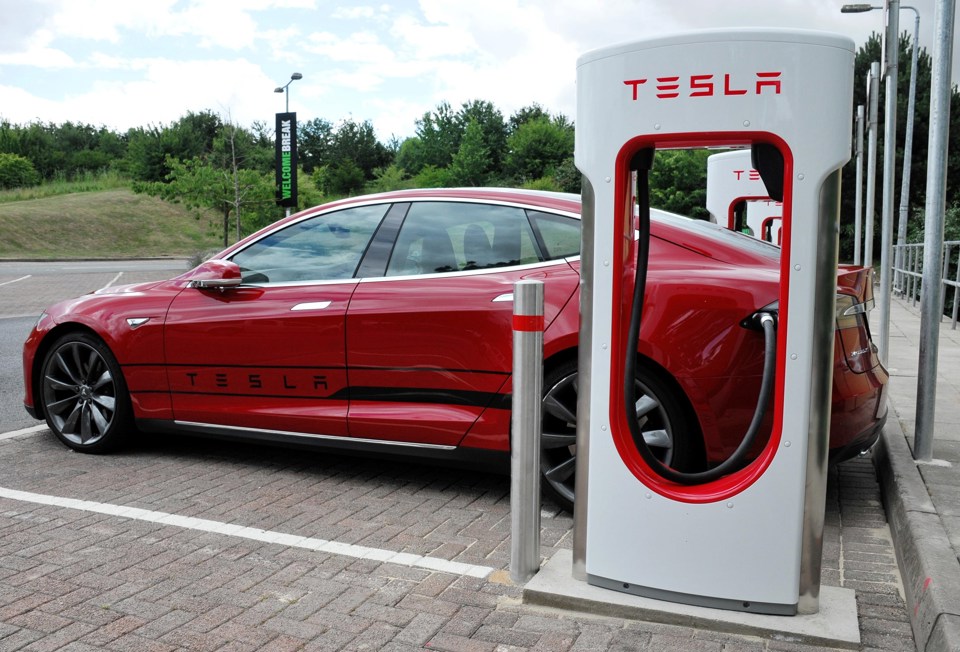




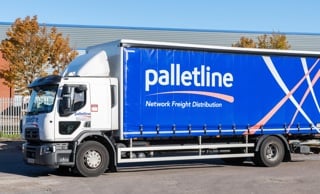
















Login to comment
Comments
No comments have been made yet.